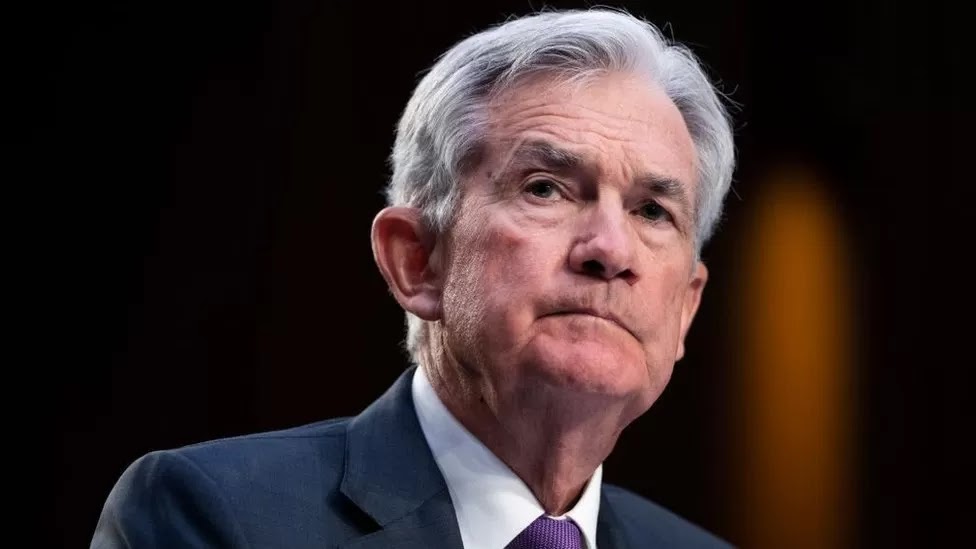In an effort to stabilize prices, the US central bank increased interest rates to their highest level in 16 years.
 |
| Image Source - Google | Image by <br><a href= BBC News |
In its tenth increase in 14 months, the Federal Reserve raised its benchmark interest rate by 0.25 percentage points.
This increased its benchmark rate from almost zero in March 2022 to between 5% and 5.25%, however, the Fed signaled that this could be the final increase for the time being.
The European Central Bank has also increased interest rates once more, but slightly less than in prior months.
In contrast to the three sessions prior, the ECB increased its three key interest rates by 0.25 percentage points.
"Important change"
Higher rates have substantially increased borrowing costs in the US, causing a downturn in industries like housing and contributing to the recent bankruptcy of three US banks.
Jerome Powell, head of the Federal Reserve, described the news as a "significant change" in that "we're no longer saying that we anticipate" further interest rate hikes.
He did not, however, rule out taking more action, saying: "We'll be driven by incoming data."
 |
| Image Source - Google | Image by <br><a href= BBC News |
When US prices were rising at the fastest rate in decades last year, the bank aggressively began raising interest rates.
Borrowing money to develop a business, purchase a home, or take on other debt becomes more expensive when interest rates rise. Officials anticipate that by raising those costs, demand will decline and prices will stabilize.
The rate of price increases in the US has begun to moderate since the Fed launched its campaign.
Although it was at its lowest point in almost two years in March, inflation—the rate at which prices rise—remained uncomfortably high for the Federal Reserve, which is aiming for a 2% rate.
The dangers to the economy as growth slows are escalating, according to Gregory Daco, chief economist at EY-Parthenon, who said he believed the Fed would be "prudent" to wait now.
"The fear of a recession is very much present in the economy today," he declared. "I don't think the battle against inflation is over, but we're in a situation where we're witnessing gradual deflation, and we're also in a climate where interest rates are high and elevated and should, therefore, be limiting business activity, which should lead to further deflation in coming months."
Customers at Ball Chain Manufacturing, a family-run business in New York, have grown more cautious recently as a result of financial concerns, according to President Bill Taubner. In reaction to costs that are still rising, his firm has reduced the amount of time it spends refilling its inventory.
However, he claimed that his company did not have any immediate borrowing needs, and he expressed confidence that any slowdown would be mild and relatively brief.
He stated, "We are aware that there is some downturn in the market due to inflation and, obviously, interest rate worries. But in the long run, we're really optimistic.
According to Mr. Powell, the recent bank failures and predicted reduction in lending would undoubtedly have an impact on the economy.
But he continued, noting that hiring has remained robust and unemployment is low, that he was still optimistic that the US would avoid going into a recession.
"I still believe it's conceivable... "I really feel like this time is different," he remarked.
The financial markets, which are searching for hints as to what the bank may do next, unanimously expected the Fed to hike rates on Wednesday.
The bank revised its March forecast in which it said "some additional policy firming may be appropriate" to bring inflation under control.
Mr. Powell stated at the news conference that the bank was "getting close or maybe even there" in terms of suspending its rate-hike campaign, but was ready to go farther if necessary.
According to Whitney Watson, global co-head of fixed income and liquidity solutions at Goldman Sachs Asset Management, depending on what transpires in the upcoming months, the Fed may yet hike rates.
 |
| Image Source - Google | Image by <br><a href= BBC News |
Although progress has been rocky, she said that inflation is currently trending in the right direction. Therefore, "a pause in rate actions is appropriate, but further tightening is plausible should inflation prove sticky."







